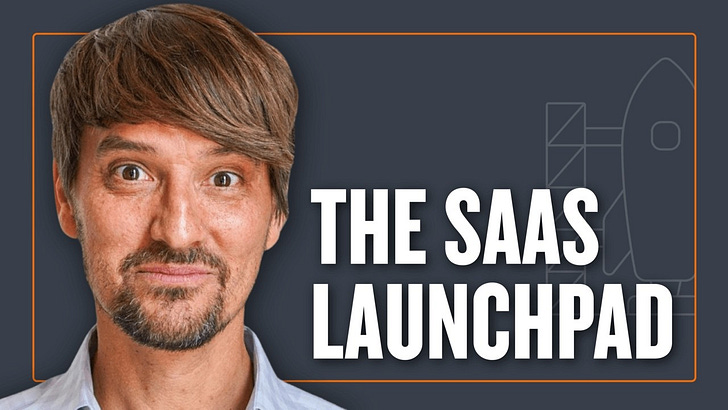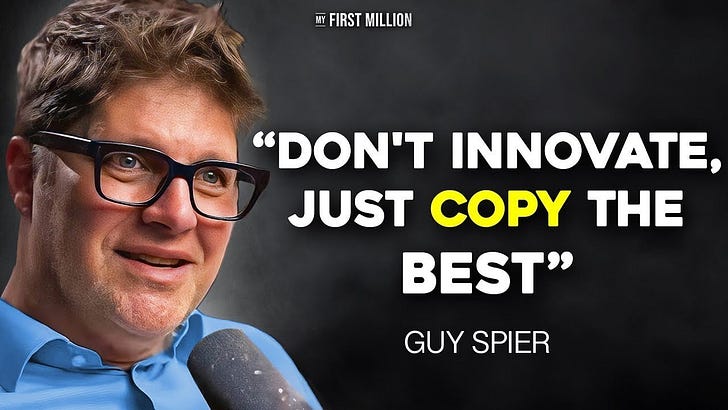"1. The Future of Attention & How to Win Big
2. The importance of doing things that don\'t scale for startups
3. Airbnb\'s early growth strategy: Prioritizing high-quality listings
4. Fleek: Validating a secondhand clothing marketplace through manual transactions
5. Algolia: Building customer relationships through direct implementation
6. Vendor: Emphasizing founder involvement and commitment during sales
7. Instacart: Launching with a \"fake it till you make it\" approach
8. DoorDash: Building a minimum viable product in a day to validate demand
9. Balancing unscalable tactics with strategic scaling for long-term success
[0.00] My First Million_@garyvee On The Future Of VR.txt
My First Million
@garyvee On The Future Of VR
"## **1. BUSINESS IDEA - The Future of Attention & How to Win Big**
[YouTube Link:
This discusses the concern about the future of attention in a world increasingly dominated by technology. It references the evolution of platforms like Tumblr and the potential of VR. However, it highlights the need for technology to become more integrated and less intrusive, like contact lenses. The core argument is that whoever controls this new paradigm of attention, where technology seamlessly integrates with our lives, will be the ultimate winner.
"
[34.40] Y Combinator_Startup Experts Discuss Doing Things That Don't Scale.txt
Y Combinator
Startup Experts Discuss Doing Things That Don't Scale
"## -BUSINESS IDEA- 1- The importance of doing things that don\'t scale for startups
[YouTube Link:
This section focuses on the concept of \"doing things that don\'t scale\" for startups, popularized by Paul Graham from Y Combinator. It challenges the early 2000s obsession with scalability, arguing that startups should prioritize acquiring early users and deeply understanding their needs. The essay by Paul Graham, \"Do things that don\'t scale,\" encourages founders to tackle immediate challenges, even through manual and unscalable methods, to gain valuable learnings. This approach helps validate product-market fit before investing heavily in scalable infrastructure. The section emphasizes that the primary goal for early-stage startups should be maximizing learning and iterating rapidly, rather than prematurely focusing on scalability, which can hinder agility and customer-centricity.
## -BUSINESS IDEA- 2- Airbnb\'s early growth strategy: Prioritizing high-quality listings
[YouTube Link:
This segment highlights how Airbnb exemplified the \"do things that don\'t scale\" philosophy during its early days. The company, facing a lack of users and traction, needed to kickstart its growth flywheel. Paul Graham advised the founders to focus on securing high-quality listings with professional-looking photos. Since users were hesitant to upload their own, the Airbnb team personally visited listings and took pictures themselves, creating a curated catalog of desirable accommodations. This hands-on, unscalable approach was crucial in attracting early adopters and building trust in the platform. It exemplifies how founders should prioritize customer-centric actions and not shy away from seemingly menial tasks when launching a new venture.
## -BUSINESS IDEA- 3- Fleek: Validating a secondhand clothing marketplace through manual transactions
[YouTube Link:
This part discusses Fleek, a startup that built a secondhand clothing marketplace connecting wholesalers with shops. To validate their idea and gain crucial insights, Fleek\'s founders employed a hands-on, unscalable approach. They physically transported boxes of clothing from wholesalers to shops in London, effectively acting as middlemen. This allowed them to understand pricing dynamics, demand elasticity, and what types of clothing sold best. This direct involvement provided invaluable data that informed the development of their online marketplace. While unsustainable long-term, this manual process enabled Fleek to rapidly test their assumptions, gather real-world feedback, and refine their value proposition before investing in scalable technology.
## -BUSINESS IDEA- 4- Algolia: Building customer relationships through direct implementation
[YouTube Link:
This segment showcases how Algolia, a search technology company, employed a customer-centric approach inspired by Stripe\'s early practices. Recognizing the importance of building strong customer relationships and gaining deep product understanding, Algolia\'s founders personally implemented their software for early adopters. This hands-on approach, while unscalable, fostered trust and allowed for direct feedback, as seen with Product Hunt. By directly integrating their solution, Algolia gained valuable insights into their customer\'s needs, enabling them to refine their product and tailor it for specific use cases. This emphasizes the value of direct customer interaction and personalized support, especially in the early stages of a startup\'s journey.
## -BUSINESS IDEA- 5- Vendor: Emphasizing founder involvement and commitment during sales
[YouTube Link:
This section highlights the importance of founder-led sales, especially in a startup\'s early days, using the example of Vendor, a SaaS company. Ryan, Vendor\'s founder, understood that selling himself and his vision was crucial in the absence of a fully developed product. He made himself readily available to potential customers, offering his personal contact information and emphasizing his unwavering commitment to their success. This approach built trust and differentiated Vendor from established competitors who couldn\'t offer the same level of personal attention. By showcasing dedication and a genuine desire to solve customer problems, Ryan successfully positioned Vendor as a partner invested in their client\'s growth. This underscores how founder involvement can be a significant competitive advantage for startups.
## -BUSINESS IDEA- 6- Instacart: Launching with a \"fake it till you make it\" approach
[YouTube Link:
This part details how Instacart defied conventional wisdom and launched without securing traditional partnerships. Instead of negotiating with grocery stores for data access, they purchased inventory from Trader Joe\'s, photographed the products, and built a basic website over a weekend. While technically a \"hack,\" this audacious move allowed them to rapidly test market demand and validate their core value proposition. This bold approach demonstrates the \"do things that don\'t scale\" ethos by prioritizing action and speed over potentially lengthy partnership discussions. By bypassing bureaucratic hurdles and launching quickly, Instacart gained valuable traction and proved their concept, ultimately putting them in a stronger position to negotiate partnerships from a position of strength.
## -BUSINESS IDEA- 7- DoorDash: Building a minimum viable product in a day to validate demand
[YouTube Link:
This segment illustrates how DoorDash, the food delivery giant, validated their business idea with a remarkably simple and quickly built prototype. Instead of investing time and resources in a sophisticated platform, the founders used Google tools like Drive, Forms, and Find My Friends to create a basic ordering and delivery system. This barebones version, built in a single afternoon, focused on the core question: Would people order food delivery through this method? By prioritizing speed and learning over a polished product, DoorDash could quickly iterate and validate their assumptions, proving their concept before investing in complex infrastructure. This example highlights the power of a minimum viable product (MVP) in validating assumptions and iterating rapidly based on real-world feedback.
## -BUSINESS IDEA- 8- Balancing unscalable tactics with strategic scaling for long-term success
[YouTube Link:
This final section emphasizes the importance of recognizing when to transition from unscalable tactics to scalable solutions for sustained growth. While \"doing things that don\'t scale\" is crucial in the early stages, startups must eventually implement sustainable systems and processes. The discussion highlights the risk of becoming reliant on unscalable practices, especially in consulting-based models where revenue is directly tied to human effort. Setting ambitious growth targets can help founders distinguish between short-term wins and long-term scalability. The segment concludes by reiterating the significance of embracing experimentation, learning from failures, and remaining flexible in the ever-evolving landscape of a startup journey.
"












